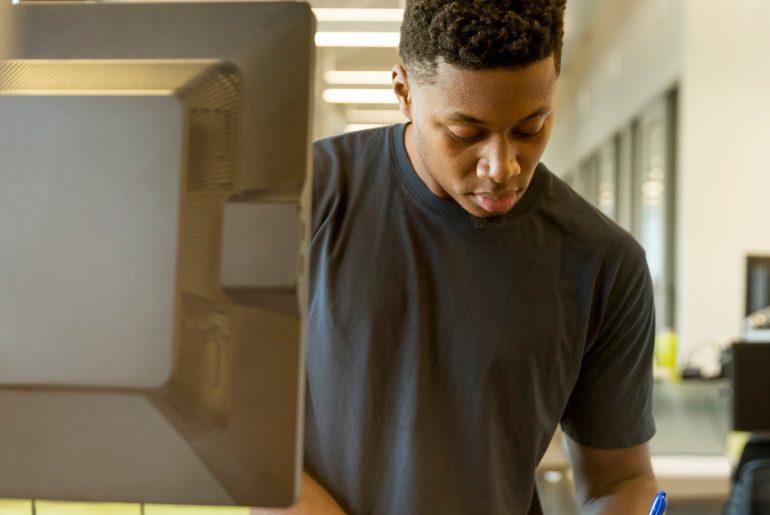Using a standing desk alongside a package of other measures to encourage office workers to sit less and move more, reduced sitting time by about an hour a day over one year, finds a trial published in The BMJ. These measures were also linked to small (though not clinically meaningful) improvements in stress, wellbeing, and energy levels at work. BeUpstanding team members Professors Genevieve Healy and David Dunstan were part of the research team that was led by A/Prof Charlotte Edwardson from The University of Leicester in the UK. What was the study about? The randomised controlled trial was evaluating the impact of the Smart Work and Life intervention with and without a sit-stand workstation, compared to a comparison group. The Smart Work and Life intervention is designed to support desk-based workers to sit less and move more, both in the workplace and at home. The trial involved 756 office workers from two councils in Leicester, three in Greater Manchester, and one in Liverpool. Similar to BeUpstanding, the Smart Work and Life (SWAL) intervention uses workplace champions to deliver the intervention. Those in the intervention group were given a range of resources to help them reduce their sitting time, and highlight…
![]()

